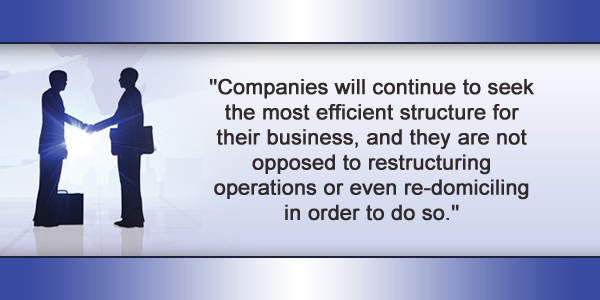A.M. Best On Shifting Tides In Global Regulation
Regulatory risk is growing for reinsurance companies, which could represent a mix of favorable and unfavorable changes for offshore domiciles should U.S. tax reforms be adopted, according to a new A.M. Best briefing.
The Best’s Briefing — titled “Shifting Tides in Global Regulation Present Challenges and Opportunities” — states that should tax and regulatory changes result in lower after tax earnings, organizations would likely respond by finding alternative operating structures to sustain earnings and manage capital cost efficiently.
“With the new U.S. administration in place, lowering the corporate tax rate and taxes on imports remain on the table, as they were among President Donald Trump’s campaign promises, intended to bring business back onshore to stimulate the U.S. economy,” A.M. Best said.
According to the briefing, this would benefit U.S. reinsurers, “however Bermuda and other offshore domiciles could be negatively impacted, and they have cited the risks of less capacity and higher rates to U.S. consumers in their opposition.”
“In January 2017, the United States and the European Union announced a bilateral agreement regarding insurers and reinsurers, which provides for mutual recognition in the areas of reinsurance, group supervision and exchange of information,” A.M. Best said.
“A key provision of the agreement is the elimination of the requirement for an assuming reinsurer in either jurisdiction to post collateral to a cedent in another jurisdiction, subject to certain conditions.
“In a market flush with abundant capacity, the reduction of collateral requirements in A.M. Best’s view could result in more pressure on rates or terms and conditions from increased competition.
“From a ratings perspective, required capital, as measured by Best’s Capital Adequacy Ratio [BCAR], could increase, since collateral will no longer serve as an offset to required capital for credit risk.
“The risk of changes in the regulatory environment is just one component in an organization’s enterprise risk management framework, and the potential change in tax structure or treatment of internal reinsurance is not a new concept for the reinsurance industry.
“Companies will continue to seek the most efficient structure for their business, and they are not opposed to restructuring operations or even re-domiciling in order to do so,” A.M. Best added.


